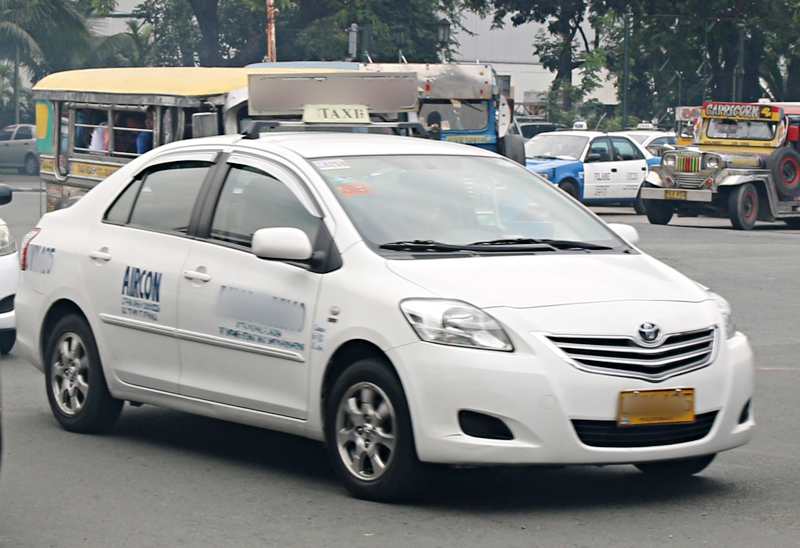One possible reason why ride-share services such as Uber and Lyft may be popular is because of the bad reputation some taxi cab drivers help to perpetuate by purposely attempting to scam customers.
Watch Out For This Taxi Scam
One such experience in China — which thankfully failed for the scammers — is that of FlyerTalk member jphripjah, who imparted this story:
Arrived at Beijing International Airport last night at 11:45 p.m. Was headed to the Crowne Plaza Wangfujing. Hadn’t been to Beijing in a while and understood that the taxi should cost 100-150 yuan.
Noticed a delightful absence of touts inside the terminal building.
Walked out exit door 7 and saw the public taxi line. Taxis are now blue and gold instead of the blue and white public taxis I remember.
The entrance to the taxi line is right at a desk labeled “Information.” There was a woman working behind the desk and a man standing in front of it. As I attempted to enter the taxi line, the dude stopped me. I thought I might be violating protocol because in some airports there’s a “taxi starter” who takes your destination info and then gives that to the driver or gives you a piece of paper or taxi assignment.
Anyway, as the guy stopped me he said “Driver does not speak English.”
I said “No problem, I have the hotel name and address here on this printout.” He and the lady looked at it. She had other blank forms on her desk that said “Take me to …” where I guess she would write the destinations in Chinese for non-Chinese people.
She looks at my paper, and then I thought she said “thousand two hundred eighty.” I gave her an incredulous look and said “I don’t understand” and she said “Two hundred eighty.” I probably misheard the “thousand” part.
I told her “I just want to use the meter.” She then immediately pointed to the taxi line and said “meter” with an apologetic/guilty look on her face. The guy persisted and said “Meter cost three hundred to four hundred fifty.”
Got in taxi, showed driver destination, the 30-40 minute taxi ride from airport to Wangfujing cost 94 yuan.
Summary
It is a shame that scams associated with taxi cabs exist around the world — such as in Las Vegas and Manila as two of many examples — and they can be potentially detrimental to tourism and the taxi cab industry itself. Perhaps that is one reason why ride sharing services have gained momentum and popularity around the world — although they are far from perfect or safe themselves, which is one reason why airports have wanted to require fingerprinting the drivers of those ride sharing services if they are to be permitted to pick up fares at the airport.
If you want to — or must — hail a taxi cab while traveling, you may want to consider the advice given in this article written by Alexander Bachuwa. Also, one trick which has worked for me in the past is to say that all you have left is a certain amount of money. Either the person will accept your offer and provide the product or service; or turn it down, as that is what happened to me in Oman when I felt like I was being scammed to see its version of the Grand Canyon — or in Mozambique when I attempted to exchange currency.
Otherwise, I recommend that you consider alternate forms of ground transportation whenever possible while traveling, as taxi cabs are not usually the fastest — or amongst the least expensive — forms of ground transportation available.
Photograph ©2014 by Brian Cohen.

